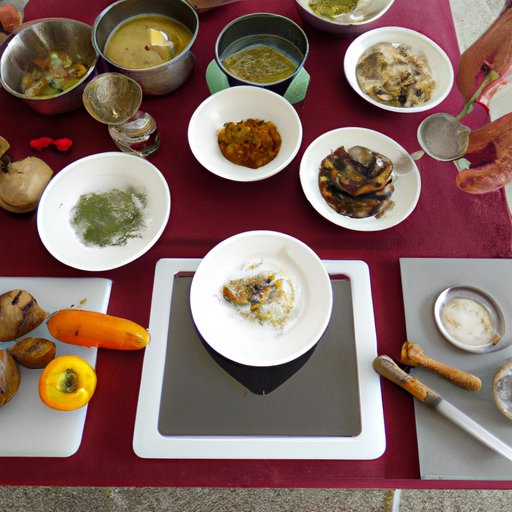Introduction
Spiritual cooking is an ancient practice that has been around since the dawn of human civilization. It is a form of cooking that incorporates elements from different religions and cultures, such as Hinduism, Buddhism, and Christianity. Spiritual cooking is not just about preparing meals, but also has a deeper meaning and purpose. It is a way to nourish the soul and connect with the divine. The goal of spiritual cooking is to create dishes that bring peace, balance, and joy to those who eat them.
Definition of Spiritual Cooking
Spiritual cooking is defined as a practice that combines the physical act of preparing meals with spiritual rituals and beliefs. It is a way to nourish the body and mind with food that has been prepared with intention and care. The ingredients used in spiritual cooking are often chosen based on their symbolic meaning, and the preparation process can involve various rituals and prayers.
Benefits of Spiritual Cooking
The benefits of spiritual cooking are numerous. It can help to promote healthy eating habits and encourage mindful eating. Additionally, spiritual cooking can provide an opportunity to slow down and enjoy the process of preparing and consuming food. By connecting with the divine while cooking, it can also help to reduce stress and improve overall wellbeing.
What Types of Foods are Used in Spiritual Cooking?
When it comes to spiritual cooking, there are no hard and fast rules as to what types of foods should be used. Generally speaking, ingredients can be divided into three main categories: whole grains, fruits and vegetables, and proteins. Whole grains such as quinoa, millet, and buckwheat provide essential nutrients and contain high levels of fiber. Fruits and vegetables offer an abundance of vitamins and minerals, and proteins such as beans, nuts, and tofu provide energy and satiation.
Specialty Ingredients
In addition to the more common ingredients found in everyday cooking, spiritual cooking can also incorporate specialty ingredients. These include herbs, spices, and oils that have been specifically chosen for their medicinal and spiritual properties. Examples of these ingredients include turmeric, ginger, cumin, rosemary, and coconut oil. The use of these specialty ingredients is believed to enhance the flavor and energy of the dish.
Understanding the Role of Rituals in Spiritual Cooking
Rituals play an important role in spiritual cooking. They can be used to honor the divine, express gratitude, or simply to create an atmosphere of peace and tranquility. Different cultures and religions may have their own unique rituals, but some common examples include burning incense, chanting mantras, or offering a prayer before beginning to cook.
Benefits of Rituals
The ritualistic aspect of spiritual cooking can offer many benefits. Not only can it be used to deepen one’s connection with the divine, it can also help to promote mindfulness and focus. Additionally, rituals can be used to create a sense of community and belonging, which can be especially helpful if you are cooking for a group.

Tips for Incorporating Spiritual Cooking into Your Diet
If you are interested in incorporating spiritual cooking into your diet, there are a few tips that can help. The first step is to plan ahead. Take time to research recipes and make sure you have all the necessary ingredients on hand. Additionally, make sure to carve out enough time for meal preparation. This will ensure that you can take your time and really enjoy the process of cooking.

Examining the Impact of Spiritual Cooking on Mental Health
In addition to providing physical nourishment, spiritual cooking can also have a positive impact on mental health. Studies have shown that incorporating mindful practices such as spiritual cooking into your diet can lead to decreased levels of stress, improved mood, and increased feelings of relaxation and contentment.

Interviewing Experienced Spiritual Cooks to Learn More
If you are interested in learning more about spiritual cooking, another great option is to reach out to experienced spiritual cooks. There are numerous resources available online that can help you find experienced cooks in your area. Once you have identified a few potential candidates, you can then contact them directly and ask questions about their experience and advice.
Conclusion
Spiritual cooking is a powerful practice that can help to nourish both the body and the soul. It is a way to connect with the divine and incorporate rituals and beliefs into the act of preparing and consuming food. By understanding the benefits of spiritual cooking, exploring the types of foods used, and incorporating tips for incorporating it into your diet, you can reap the rewards of this ancient practice.


